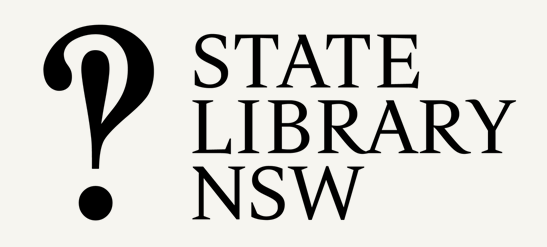Background
The State Library of South Australia holds numerous items of significance to Aboriginal and Torres Strait Islander communities, including photographs, manuscripts and audiovisual material. Much of this material relates to communities outside of South Australia and geographically distant from the library’s physical location in Adelaide. Whilst acknowledging Aboriginal and Torres Strait Islander peoples as the moral and cultural owners of items in its collection, the library has been unable to proactively repatriate these materials due to a lack of resources.
An exception to this is the Adelaide-based Ara Irititja project, which the library has worked closely with to supply collection material to the Pitjantjatjara and Yankunytjatjara communities of the APY Lands in Central Australia since the late 1990s. Prior to the introduction of a formal policy in 2010, when community organisations contacted the library seeking copies of relevant material they were either given a quote at standard digitisation rates, or individual staff members attempted to negotiate a fee waiver with colleagues and management, or similar exceptions to regular procedures.
Around 2008-09 an increase in the capacity for Aboriginal communities to access cultural heritage material on Country led to a noticeable increase in copy requests, and a range of attempts were made to digitally repatriate collection items at minimal or no cost. The ad hoc nature of these transactions led to inconsistency and uncertainty, and it became clear that there was a need to formalise the system for the sake of consistency, clarity and transparency. To address this, in 2010 the library’s Indigenous Matters Working Group developed the Repatriation to Aboriginal and Torres Strait Islander Communities Policy.
Policy and process
Requests for repatriation are community-initiated, and usually start with a phone call, visit or online enquiry from a community representative. Once the community has been made aware of the policy and its conditions, a research librarian supplies an overview of relevant content and any potential costs. Collection material is selected by the community and the research librarian then coordinates the work of library colleagues to supply the digital content and any associated metadata.
When material is supplied, the library asks that communities agree to the conditions outlined in the policy. These conditions cover a range of practical issues, including that:
- requests must come from an established or developing Indigenous Knowledge Centre, database or other community-owned project (this policy does not apply to copy requests made by individuals)
- fees are only charged for cost-recovery. In practice, if material is digitised the community is only charged for the cost of any storage media required. If not already digitised, this service is charged at the library’s in-house ‘cost recovery’ rate only
- any material repatriated must be made available for general community use (excluding that which is culturally restricted)
- the library must be credited as the source of the material and the library’s unique identifier number included, for ease of future reference
- permission must be sought from the State Library of South Australia to supply material to third parties. This does not apply to copies made for members of the community, just for researchers, journalists, etc. This is usually a formality, but it enables the library to ensure that appropriate descriptive information is included and that any donor conditions are met.
Fortunately, much of the library’s most significant and sought after material has already been digitised. When there is undigitised material that a community is keen to acquire but is unable to fund, it is placed in the queue of material awaiting digitisation and, once digitised as part of regular workflows, is provided at no cost as per the policy. This is a good compromise as it ensures the library is digitising material of importance, enabling the rightful return of this material to its traditional owners, and is able to do so without putting pressure on limited staff resources and existing workflows.
Outcomes
Since November 2010, the library has responded to 29 requests from 17 different Aboriginal community organisations, returning 1815 photographs, 66 audio recordings, 425 artworks and more than 9000 manuscript pages.
In addition to fulfilling its primary goal of providing access to cultural heritage on Country, the policy has returned material that has contributed to a variety of community-led projects, including databases, publications, exhibitions, interpretive signage and language resources.
The library has also benefited from the policy by having the opportunity to digitise more of its heritage collections, receiving advice about collection material, and establishing relationships with communities. It has also raised staff awareness across the organisation about how and why collections that tell Aboriginal and Torres Strait Islander stories need to be considered differently to others.
Lessons learnt
A major lesson learnt is that a policy that is under-resourced can only achieve so much. Ideally, the library would locate and connect with communities that are represented in our collections and proactively offer digital repatriation, rather than wait to be approached before acting. This would also provide an opportunity to build longer-term and more meaningful relationships with communities, where currently the relationship rarely extends beyond the return of material. Better relationships would enable the library to continue a conversation about the use and management of repatriated material and consult further with communities about their wishes regarding the library’s description and management of their cultural heritage.
The wording of the policy has been reviewed and adjusted over time to allow for expansion of the range of material requested, its uses and the types of organisations making requests. As with all policies, there is a need for regular revision and reporting on the policy and how it operates.









